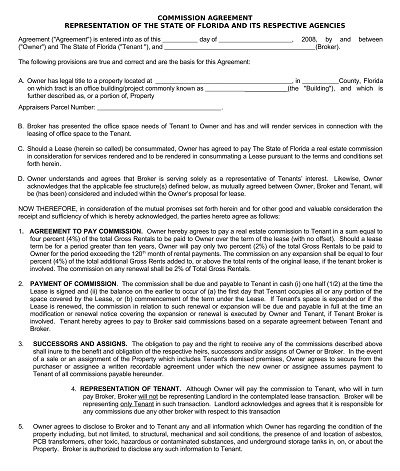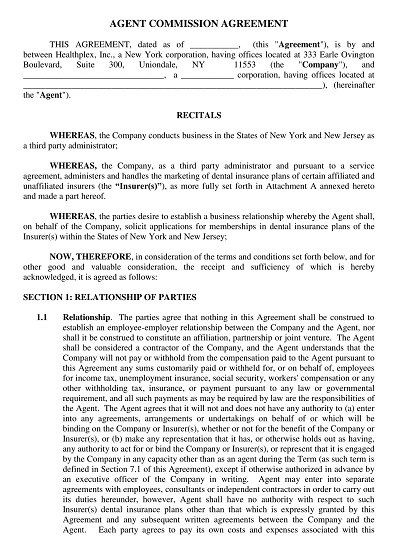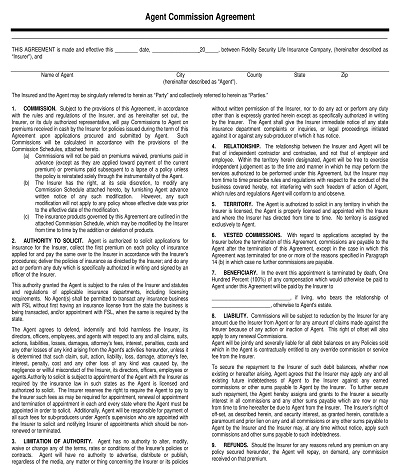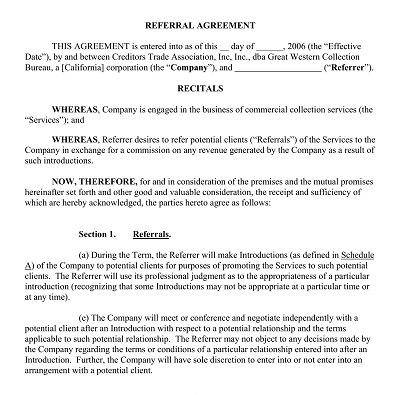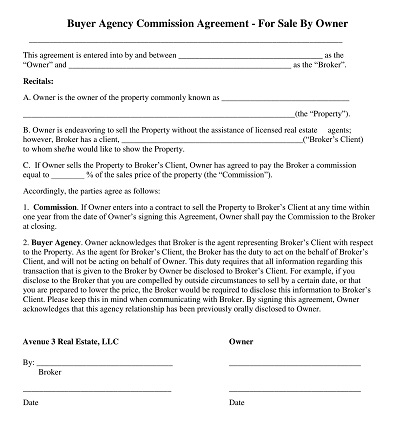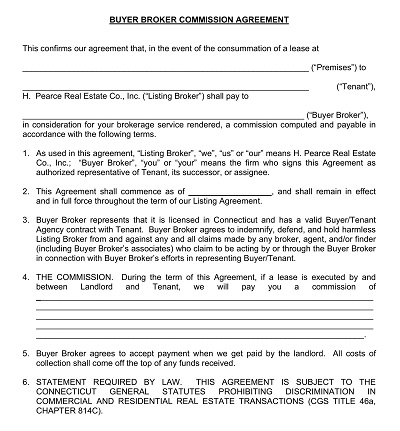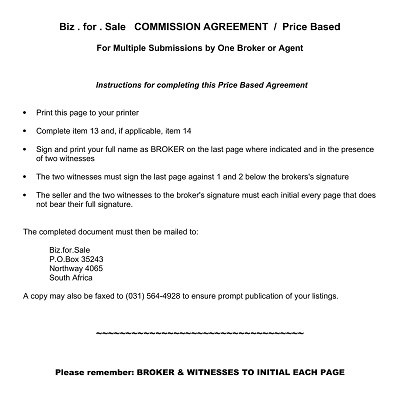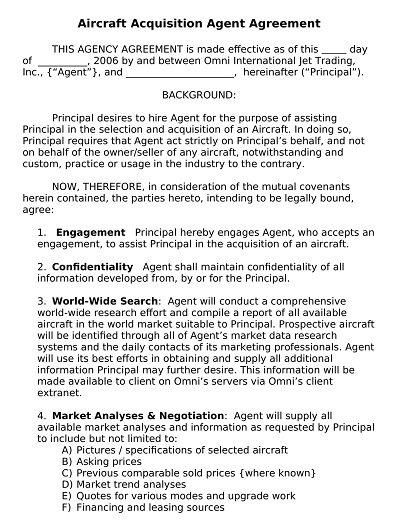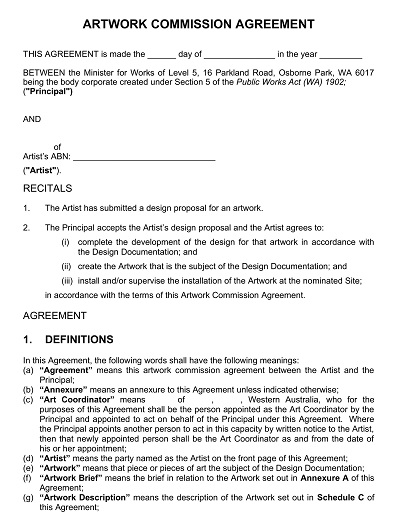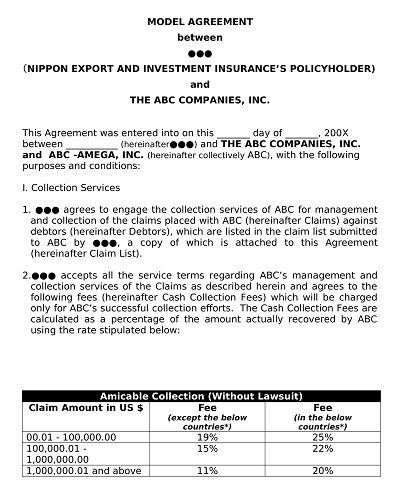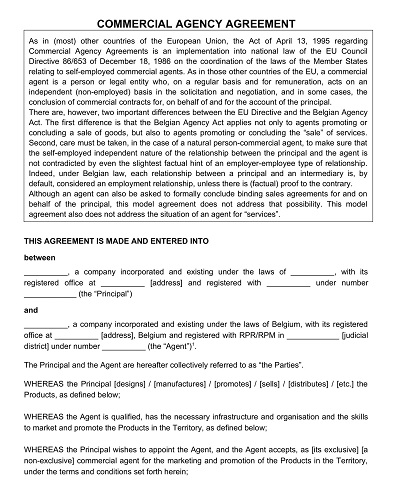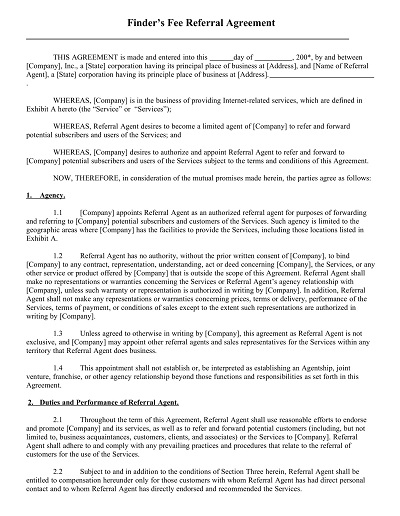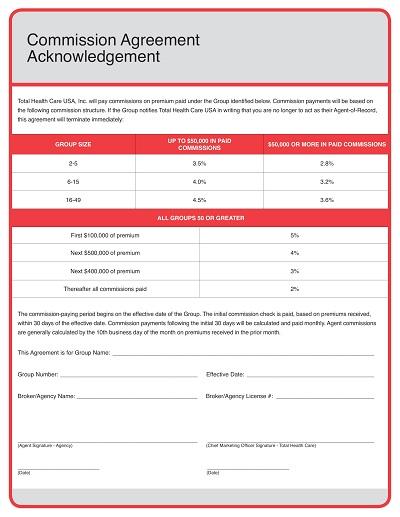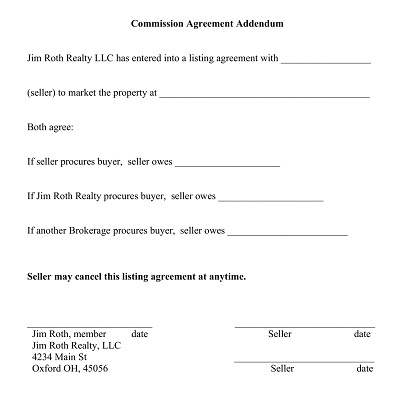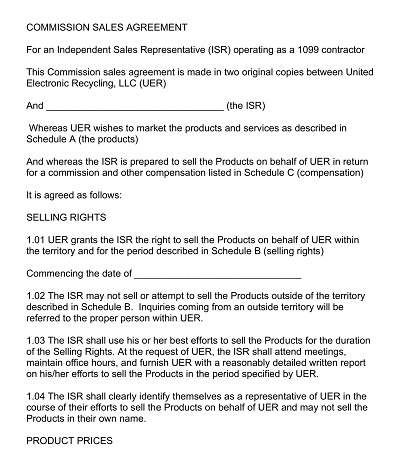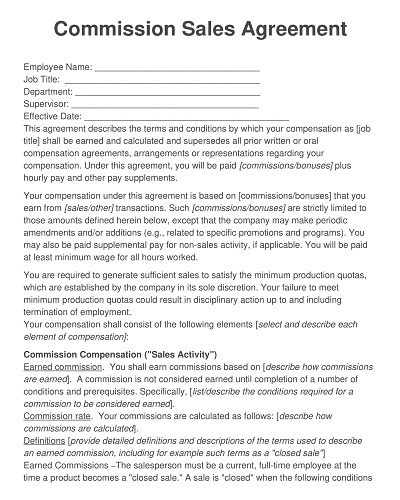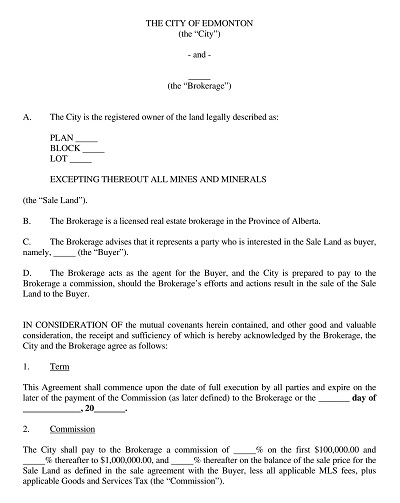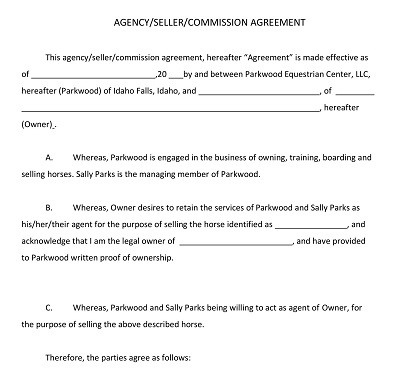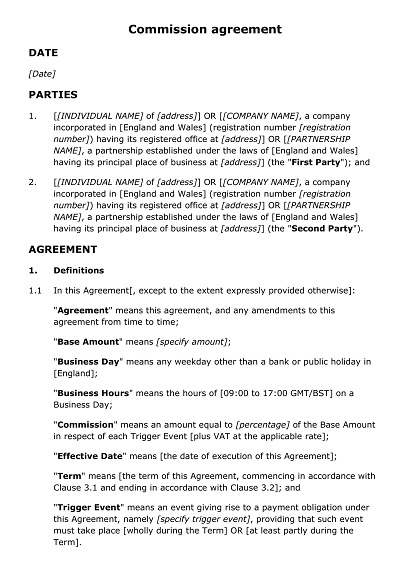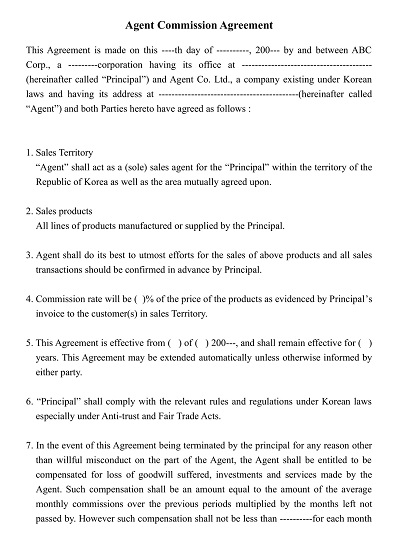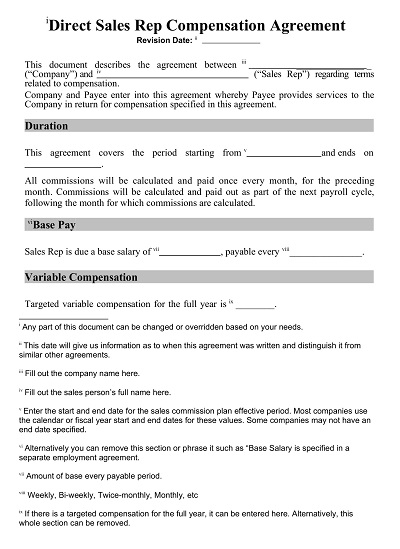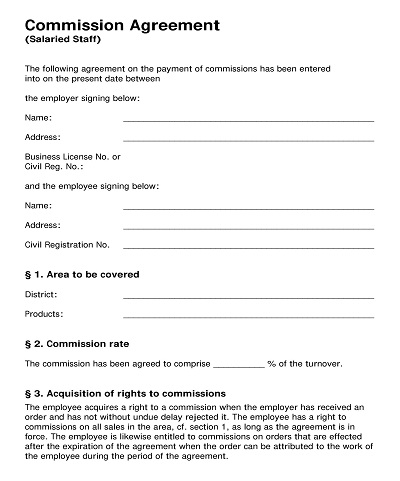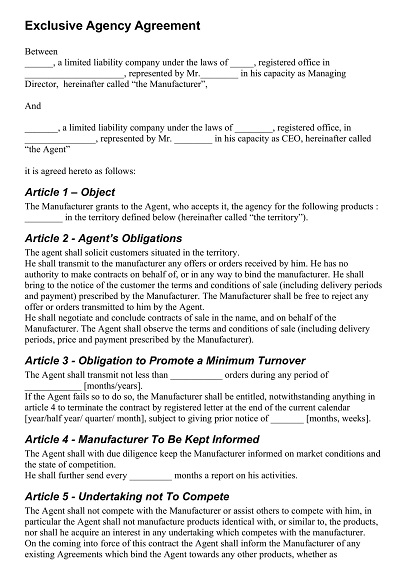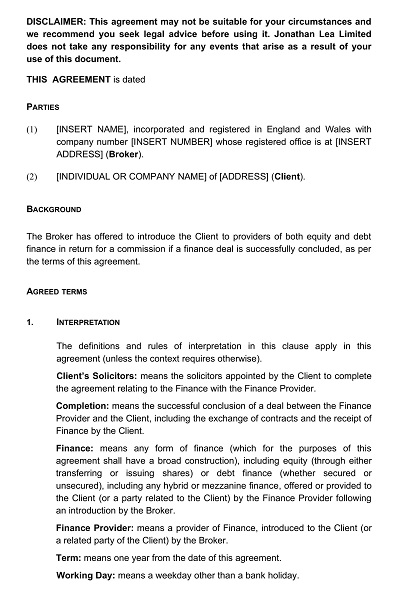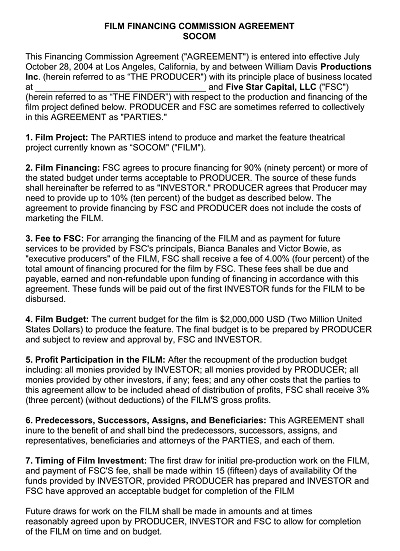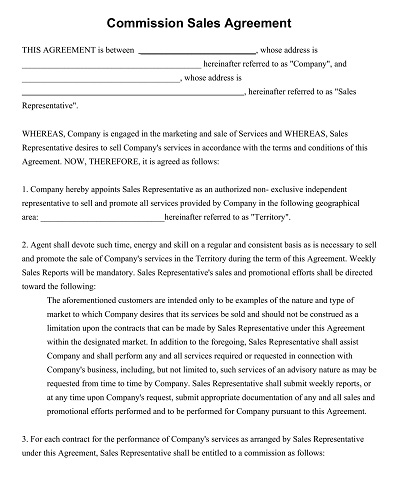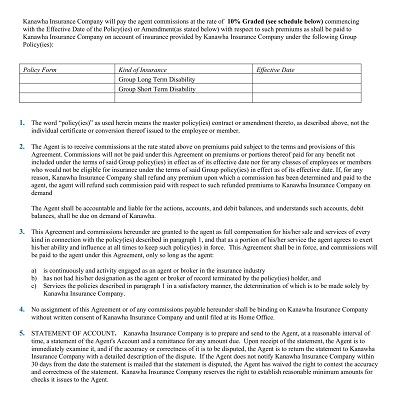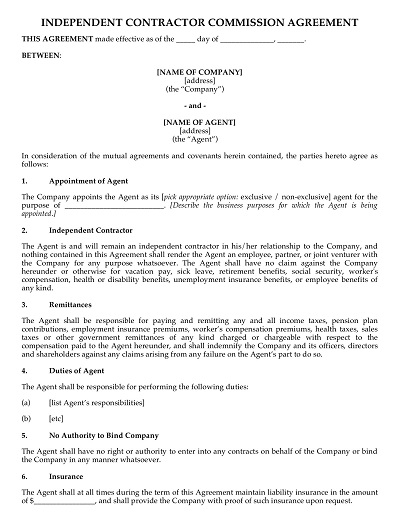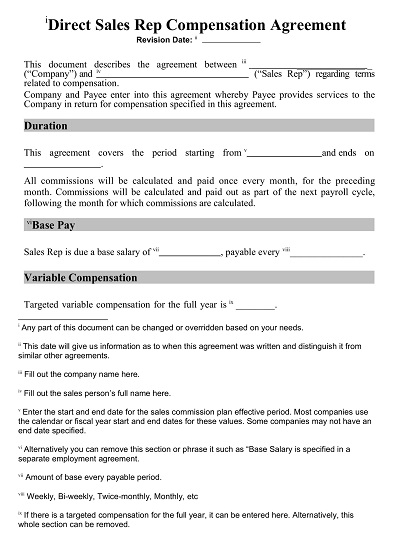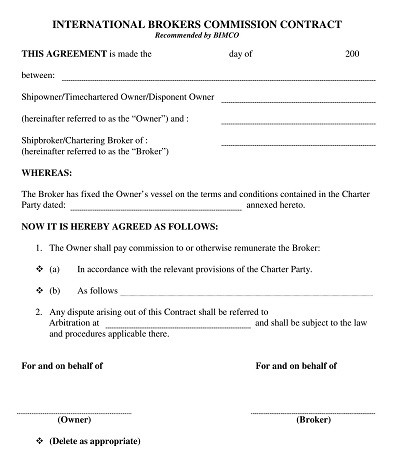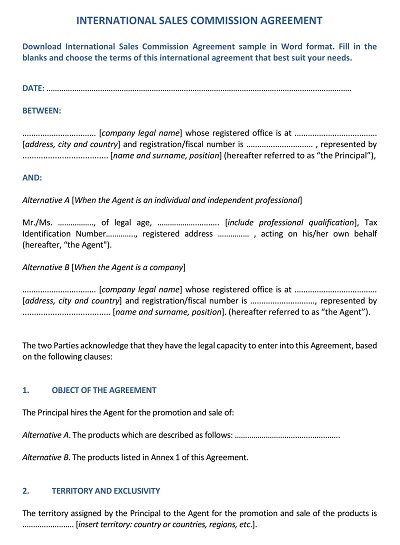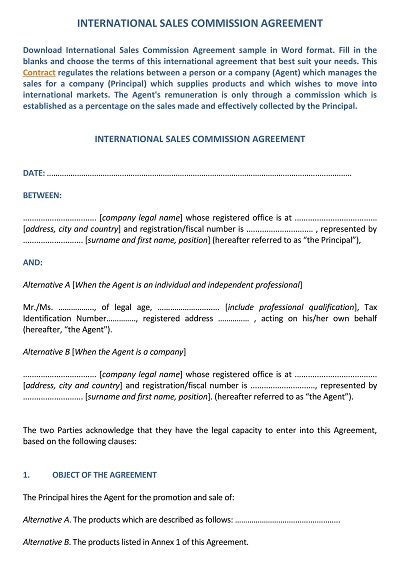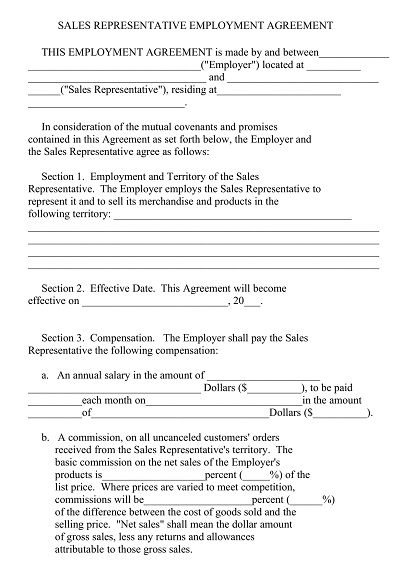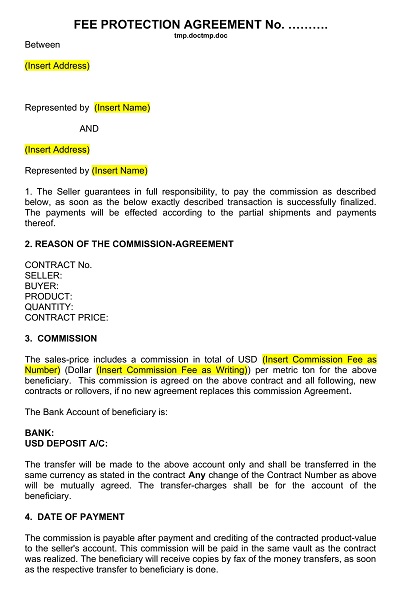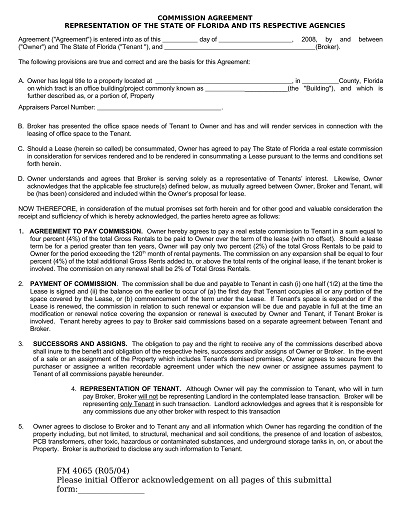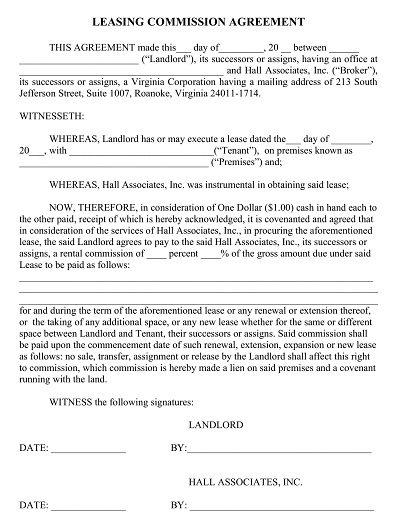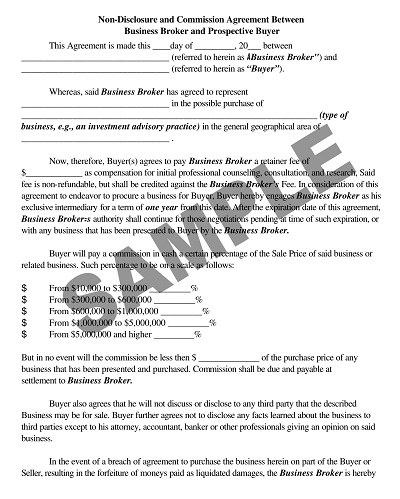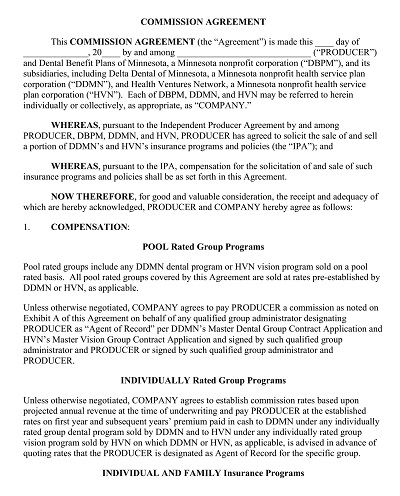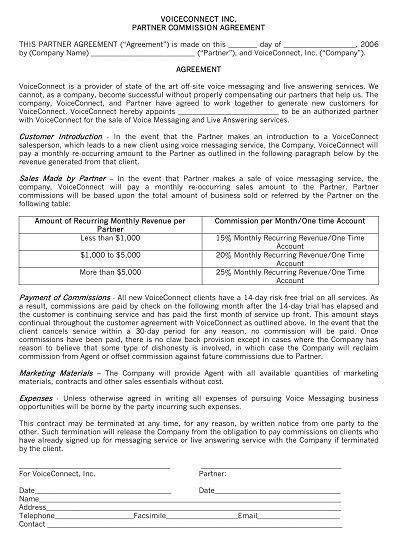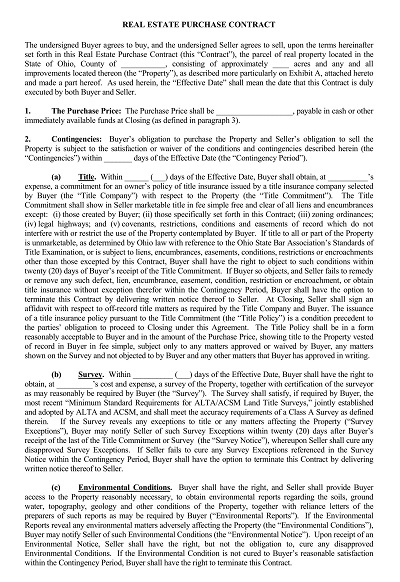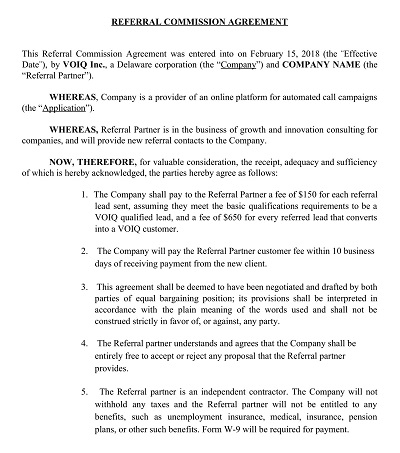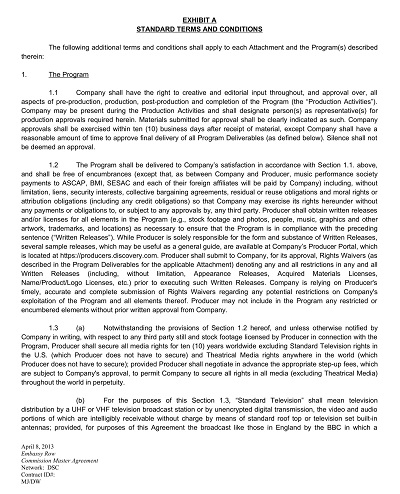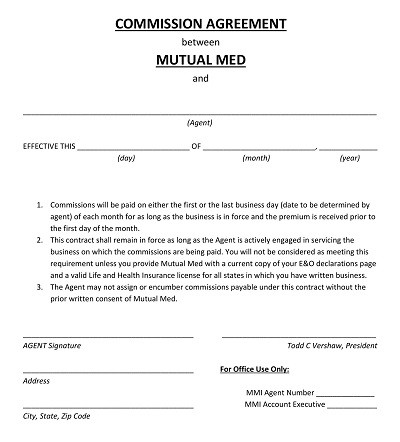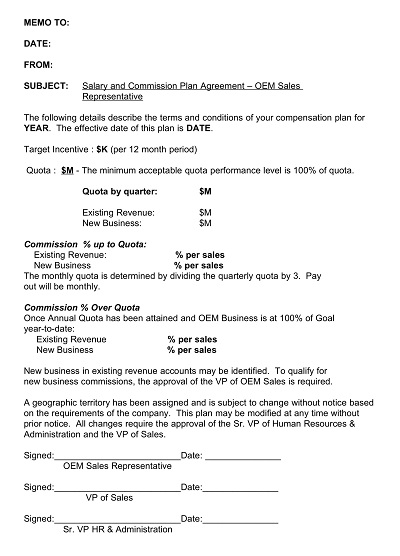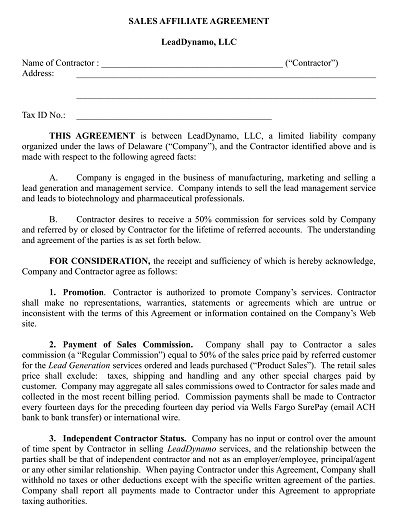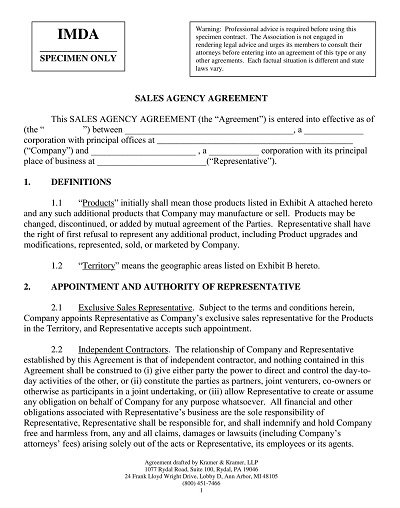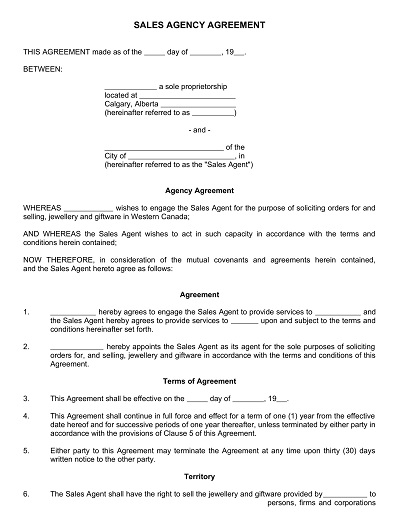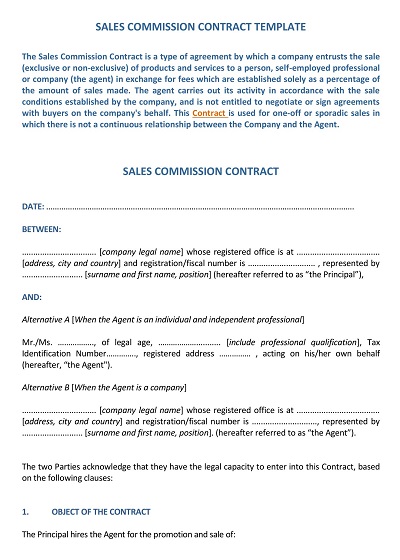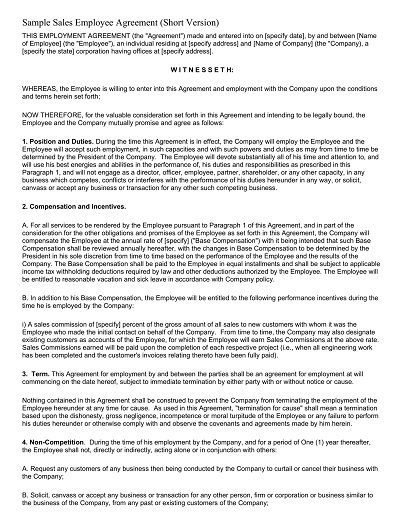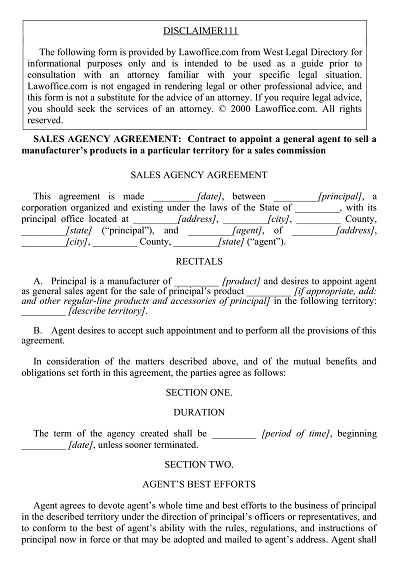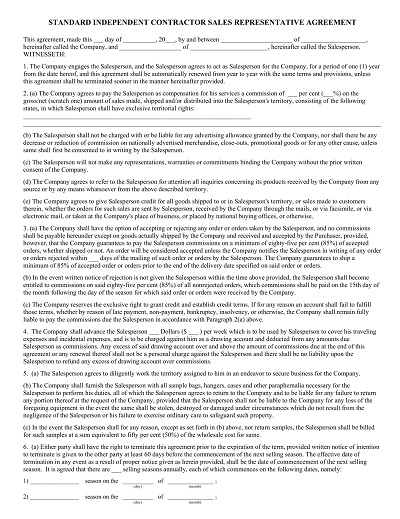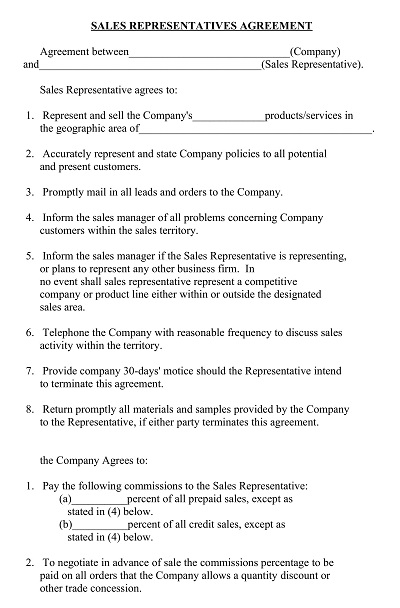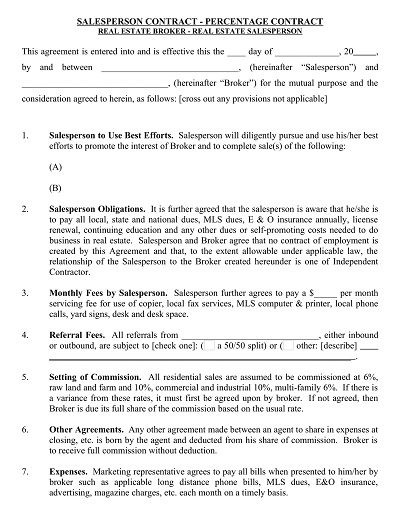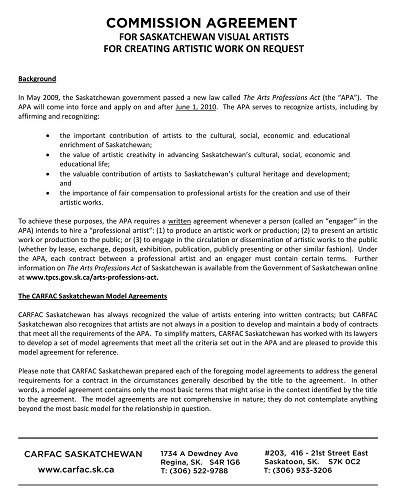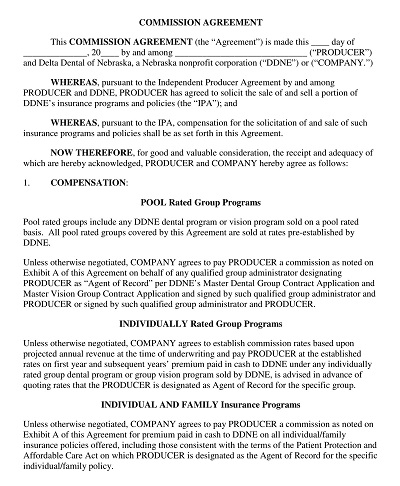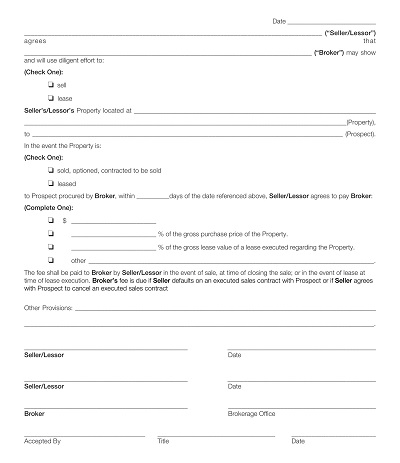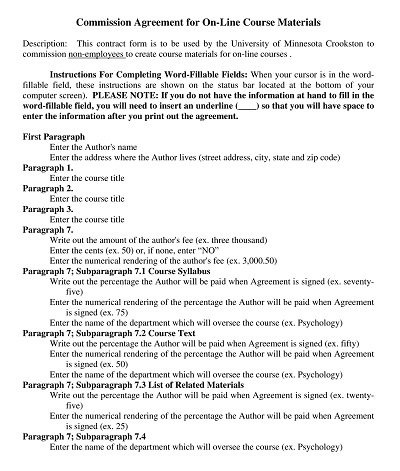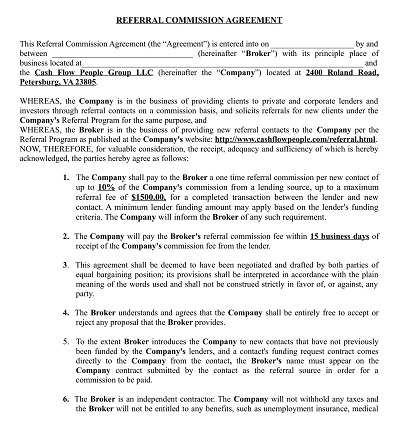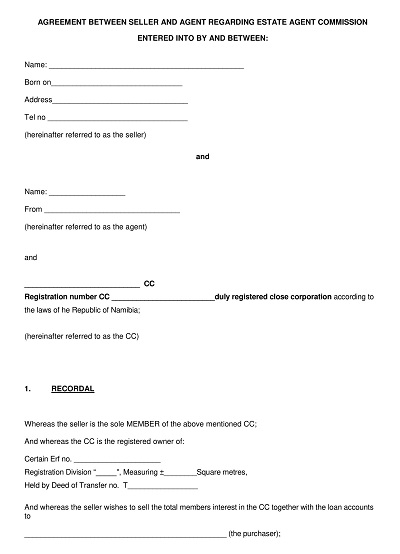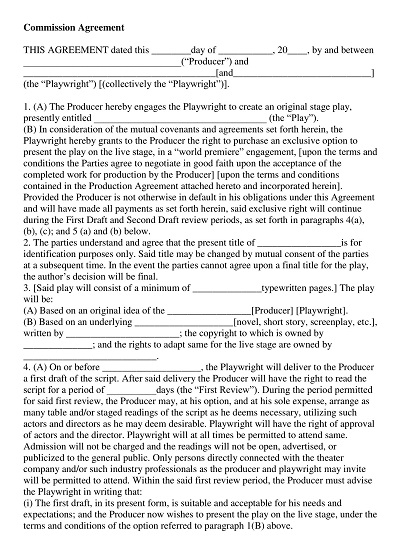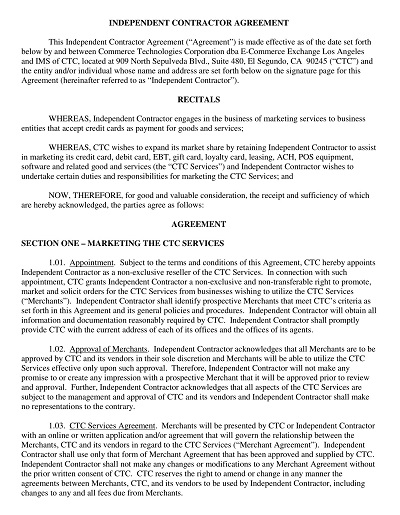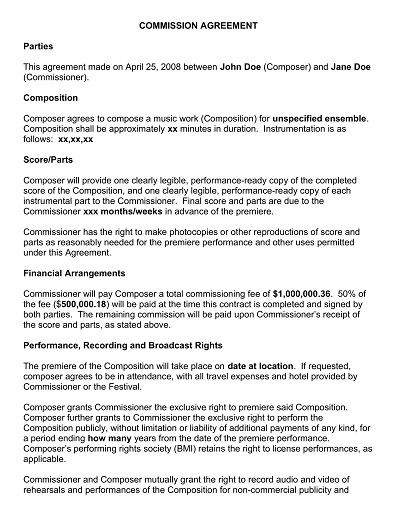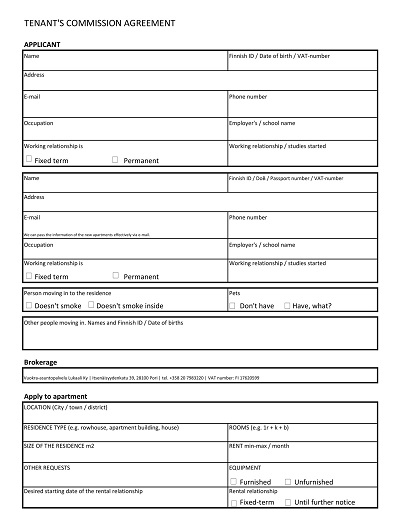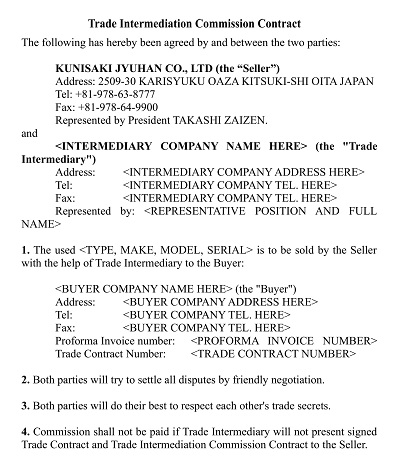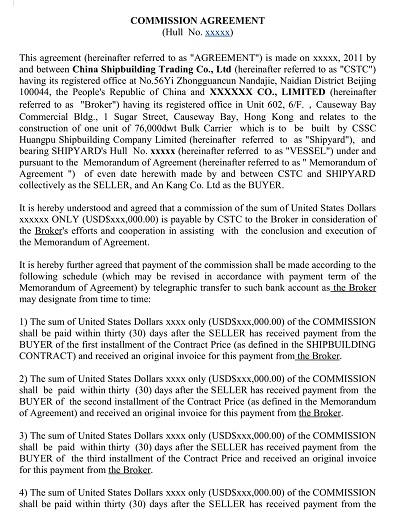75+ Free Simple Commission Agreement Templates – Printable PDF, Doc
As a business owner, it’s important to have a commission agreement in place before engaging in any sales-related activities. A commission agreement is a legal document that outlines the terms and conditions of any commission payments between two parties and can help prevent any misunderstandings or disputes.
Fortunately, many commission agreement templates are available here that can be customized to meet your specific needs. Using a template saves time and ensures that all necessary details are included in the document. Please don’t take any chances when it comes to commission agreements. Get started on creating a solid template today!
Download Free Simple Commission Agreement Templates
Types of Commission Agreements
The commission agreement is widely used in business to motivate salespeople and other agents to do their best to close deals. It’s a payment system where the seller gets a percentage of the sale price as compensation, often referred to as a commission. However, not all commission agreements are created equal. Here are some different types of commission agreements and their implications for buyers and sellers.
Straight Commission
This is the simplest form of commission agreement, where the seller receives a percentage of the sale price as a commission. The percentage can be fixed, variable, or graduated depending on the product or service sold. The straight commission is commonly used in sales positions where the seller has a direct relationship with the buyer, such as real estate agents or car salespeople.
Base Salary and Commission
This type of commission agreement is common in jobs with a steady base salary and a commission for every sale. For example, a marketer may receive a base salary of $50,000 annually plus a 5% commission on every sale. This ensures the seller has a steady income even when sales are slow.
Residual Commission
The residual commission is often used in the service industry, where the seller receives a commission based on the length of time that the customer remains loyal to the seller. For example, a seller selling cable TV subscriptions may receive a monthly commission as long as the customer continues paying for the service.
Tiered Commission
In a tiered commission agreement, the commission percentage varies based on the sales volume. The more sales the seller makes, the higher the commission percentage. This type of commission agreement is common in direct sales or multi-level marketing companies.
Commission on Gross Margin
Commission on gross margin is based on the difference between the cost of the product or service and the sale price. This type of commission agreement is common in manufacturing or distribution businesses where the seller plays a crucial role in setting the sale price.
Commission Structures and Rates
When it comes to commission agreements, the commission’s structure and rate play a critical role in determining success. The structure outlines how the commission will be calculated and earned, while the rate identifies the percentage of the sale paid as commission.
Finding the right commission structure and rate is key to incentivizing sales representatives to perform at their best and maximizing revenue for both the representative and the company. A poorly designed commission structure and rate can lead to disengagement, frustration, and, ultimately, a decrease in sales. Therefore, businesses should invest time in developing commission agreements that motivate sales reps and align with their business goals.
Legal Considerations in Commission Agreements
When entering into a commission agreement, it is crucial to consider the legal implications of the terms and conditions outlined in the contract. Most importantly, commission agreements should clearly define the responsibilities of both parties involved, including the commission rate, payment terms, and termination clauses. Additionally, it is essential to ensure that the agreement complies with all applicable laws and regulations, such as those related to employment, contract, and tax laws.
Failing to secure a well-written and legally sound commission agreement could lead to costly disputes and possible legal consequences. As such, seeking legal guidance when drafting or reviewing a commission agreement is always advisable to minimize risks and ensure a fair and equitable arrangement for all parties involved.
How to Create a Commission Agreement Template
If you are running a business that operates with salespeople or agents, it is essential to have a commission agreement in place to ensure everyone is on the same page. A commission agreement template outlines the terms and conditions of a commission-paying arrangement between an employer and an employee or independent contractor. The agreement sets out the relationship’s nature, the parties’ responsibilities, and the payment terms.
Determine the Parties Involved
The first step in creating a commission agreement template is identifying the parties involved. In this case, the parties are the employer and the sales or agency employee/independent contractor. Outline their full names and their roles in the agreement. If applicable, you should also include the company name and address.
Define the Commission Structure
Next, it is essential to define the commission structure. This section should include the percentage of sales that will go towards commission, conditions for qualification, and any specific sales objectives that must be met before the commission kicks in.
Include Payment Terms and Reporting
All parties must agree to the payment structure, which should also include the frequency of payments and any other terms related to reporting requirements, such as when records are due and the measures taken by all parties involved to ensure proper and timely payments.
Establish the Terms of Termination
Unfortunately, sometimes business relationships come to an end, and it is vital to establish this in your commission agreement template. Both parties should agree to the circumstances under which the agreement may be terminated, including deadlines, what happens to commissions earned, and any relevant notification requirements.
Identify Confidentiality Requirements and Relevant Non-Disclosure Agreements
Your commission agreement should also outline the requirements for confidentiality, especially if sensitive trade or business information between the parties is being shared. This section should include relevant non-disclosure agreements.

